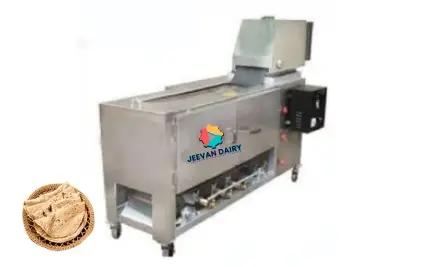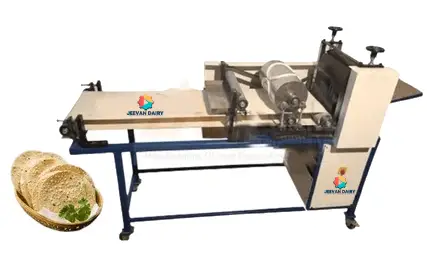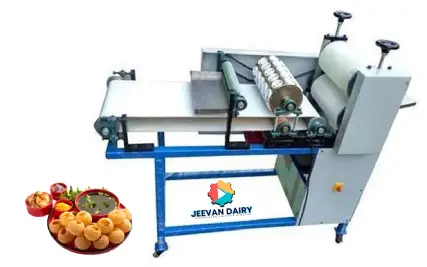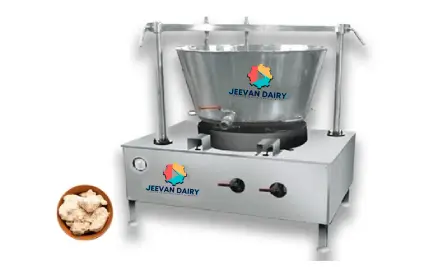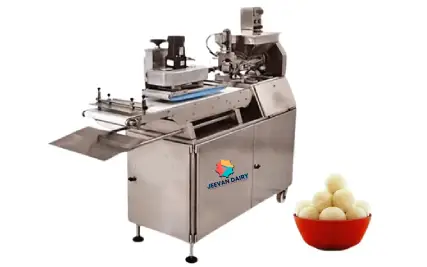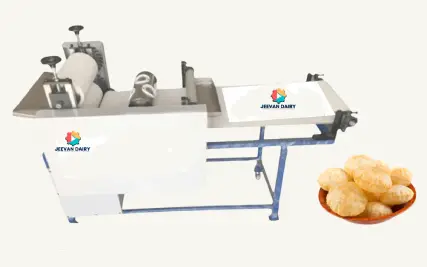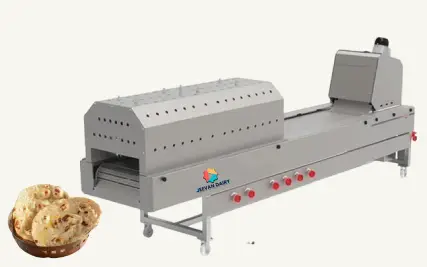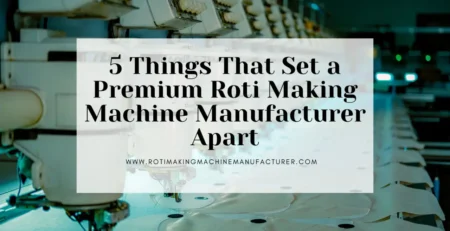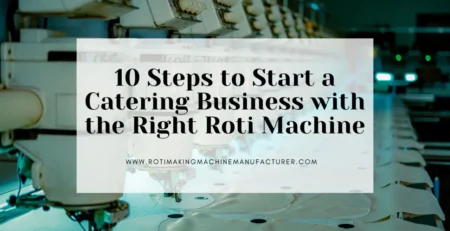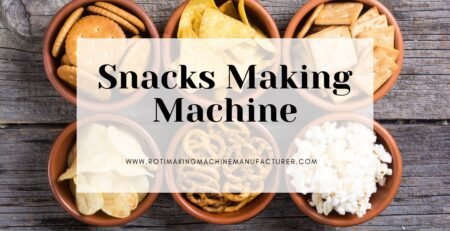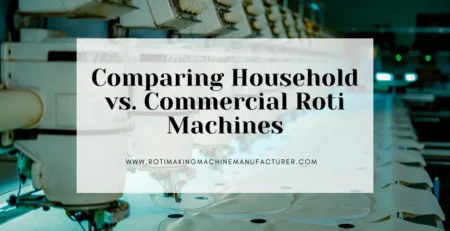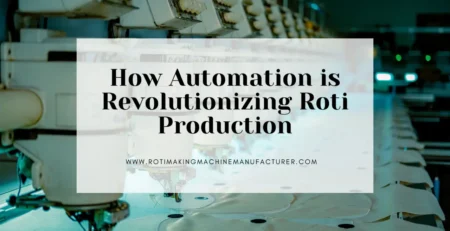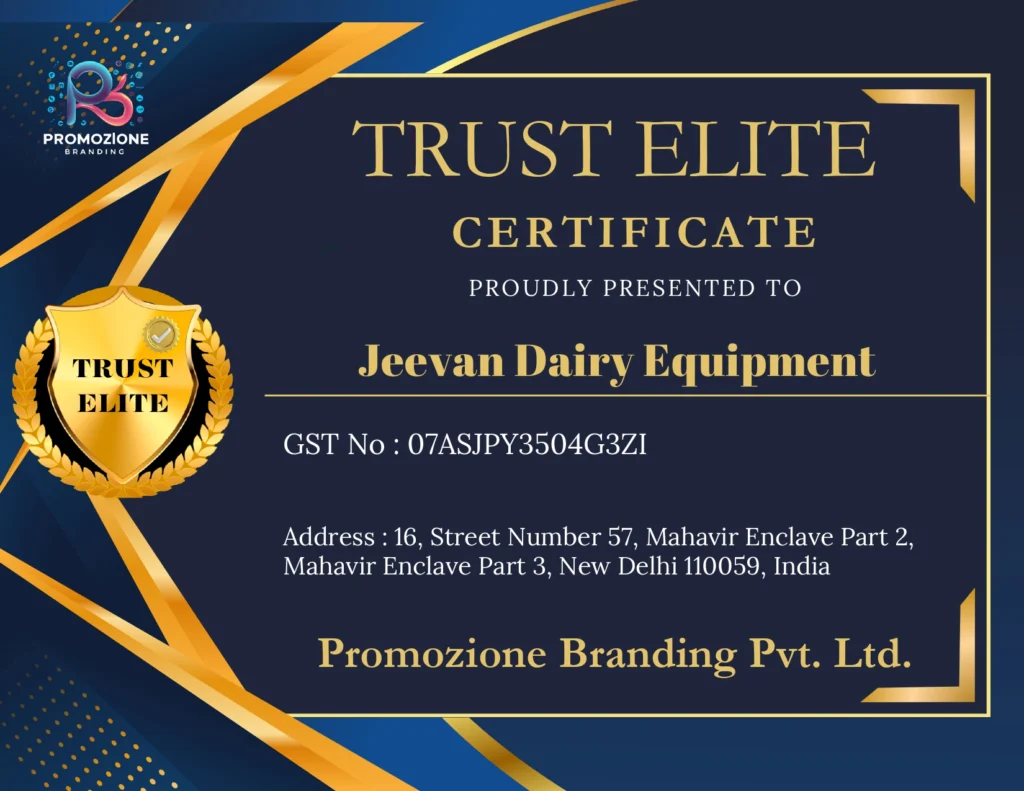10 Emerging Trends in Roti Making Machines for 2025
Introduction
The global food processing industry is evolving rapidly, and traditional foods like roti are no longer made solely by hand. In 2025, roti making machines are at the forefront of automation and innovation, enabling commercial kitchens, bakeries, catering businesses, and packaged food manufacturers to produce high-quality rotis efficiently.
Modern roti making machines not only reduce labor costs but also ensure uniform size, thickness, and texture, which is critical for brand consistency in packaged food products. For businesses looking to scale production, working with a reliable Roti Making Machine Manufacturer like Jeevan Dairy Industry guarantees machines that combine precision engineering, durability, and smart functionality.
This comprehensive guide explores the top 10 emerging trends in roti making machines in 2025, offering detailed insights, practical applications, and tips for maximizing productivity and efficiency. Each trend highlights why partnering with a trusted Roti Making Machine Manufacturer is essential.
1. Advanced Automation and Smart Controls
Automation is transforming roti production by minimizing manual labor and ensuring consistent product quality. Modern machines integrate smart controls for:
- Automatic dough feeding, rolling, and cooking.
- Precise control over roti diameter, thickness, and cooking time.
- Programmable settings for multiple recipes or variants.
Practical Example:
A large-scale catering company using automated roti machines from Jeevan Dairy Industry increased daily production by 50% while maintaining uniform size and texture across thousands of rotis.
Supplier Insight:
A trusted Roti Making Machine Manufacturer provides machines with user-friendly digital interfaces, enabling operators to program recipes, monitor production, and reduce human error.
Technical Note:
Smart sensors can detect dough consistency and adjust rolling pressure automatically, ensuring uniform rotis even when dough moisture levels fluctuate.
2. Energy-Efficient Heating Systems
Energy consumption is a critical factor in large-scale roti production. Emerging machines focus on energy-efficient heating technologies, such as:
- Infrared or induction heating for faster and uniform cooking.
- Temperature-regulated rollers to minimize heat loss.
- Insulated cooking plates to conserve energy.
Business Advantage:
Reducing energy usage by up to 20% lowers operational costs and supports sustainability goals.
Practical Tip:
Pair energy-efficient machines with proper kitchen layout and workflow optimization for maximum cost savings.
Supplier Role:
A reliable Roti Making Machine Manufacturer ensures machines meet energy efficiency standards without compromising output or quality.
3. Multi-Functional Machines for Diverse Products
In 2025, roti making machines are becoming multi-functional, capable of producing:
- Plain rotis, parathas, and chapatis.
- Flavored or stuffed rotis for niche markets.
- Gluten-free or specialty variants.
Business Insight:
Multi-functional machines allow businesses to diversify product offerings without investing in multiple machines.
Supplier Role:
Jeevan Dairy Industry designs machines with modular settings, enabling operators to switch between products seamlessly.
Technical Note:
Adjustable rolling thickness, variable speed, and programmable cooking cycles support the production of different roti types while maintaining quality standards.
4. Compact and Space-Saving Designs
Modern kitchens demand equipment that maximizes space efficiency. Roti making machines in 2025 are:
- Smaller in footprint while maintaining high production capacity.
- Modular and portable for flexible kitchen layouts.
- Designed for easy installation and maintenance.
Practical Example:
A cloud kitchen operating in a 500 sq. ft. space was able to install a full roti production line with minimal disruption using compact machines from Jeevan Dairy Industry.
Supplier Role:
A trusted Roti Making Machine Manufacturer ensures machines are space-efficient without sacrificing functionality, supporting small and medium enterprises.
5. IoT-Enabled Monitoring and Predictive Maintenance
IoT integration is revolutionizing roti production by enabling real-time monitoring and predictive maintenance. Features include:
- Remote monitoring of production rates and machine performance.
- Alerts for maintenance or malfunctions.
- Data analytics to optimize production efficiency and resource utilization.
Business Advantage:
Predictive maintenance reduces downtime and extends machine lifespan, saving costs on repairs and replacements.
Supplier Role:
Jeevan Dairy Industry offers IoT-enabled machines that can integrate with smart kitchen systems, providing operational insights and maintenance alerts.
Technical Note:
Sensors can monitor roller wear, dough feed consistency, and heating element efficiency, allowing operators to prevent potential failures before they occur.
6. High-Speed Production Capabilities
Consumer demand for ready-to-eat rotis is rising, prompting the need for high-speed production machines:
- Faster rolling and cooking cycles without compromising quality.
- Increased output per hour to meet commercial and industrial demand.
- Consistent thickness and texture at high speeds.
Practical Insight:
High-speed machines enable bakeries and catering businesses to scale production, delivering thousands of rotis daily with uniform quality.
Supplier Role:
A trusted Roti Making Machine Manufacturer like Jeevan Dairy Industry ensures machines operate smoothly under continuous high-speed conditions, enhancing ROI.
7. Enhanced Hygiene and Food Safety Features
Food safety regulations are more stringent than ever. Emerging roti machines incorporate:
- Stainless steel construction for easy cleaning and corrosion resistance.
- Automated handling to minimize manual contact with dough.
- Anti-bacterial surfaces on rollers and cooking plates.
Business Insight:
Compliant machines help meet ISO, HACCP, and local food safety standards, reducing the risk of contamination.
Supplier Role:
Jeevan Dairy Industry designs machines to comply with international hygiene and food safety standards, making them suitable for industrial kitchens and packaged food production.
8. Customizable Thickness and Diameter Settings
Consumer preferences vary widely, requiring flexible machine settings:
- Adjustable rollers for precise control over roti thickness.
- Diameter customization for different market requirements.
- Easy settings adjustment to switch between product lines.
Business Advantage:
Uniformity in size and texture improves customer satisfaction and brand consistency.
Supplier Role:
A trusted Roti Making Machine Manufacturer offers highly adjustable machines, enabling versatile production for multiple product lines.
9. Reduced Maintenance and Longer Operational Life
Modern machines are built to minimize maintenance requirements:
- Wear-resistant rollers and non-stick surfaces.
- Modular components for easy replacement.
- Automated lubrication and cleaning systems.
Business Insight:
Longer machine lifespan and minimal maintenance reduce downtime and operational costs, ensuring consistent production.
Supplier Role:
Jeevan Dairy Industry manufactures machines with high-quality materials and precision engineering, providing durability and low maintenance.
10. Integration with Packaging Systems
With the rise of ready-to-eat and frozen roti products, machines are increasingly integrated with automated packaging systems:
- Seamless transfer from cooking to packaging lines.
- Reduced handling to maintain hygiene and freshness.
- Compatibility with modern packaging formats.
Business Advantage:
Integration improves production efficiency and reduces labor costs while maintaining product quality.
Supplier Role:
A trusted Roti Making Machine Manufacturer ensures machines are compatible with standard packaging lines, supporting end-to-end production.
Additional Trends Impacting Roti Making Machines
Beyond the top 10, other emerging trends include:
- Eco-friendly and energy-saving designs to reduce operational costs.
- Smart analytics for production optimization and waste reduction.
- Multi-product capability for specialized doughs like gluten-free or organic variants.
- Noise reduction features for quieter kitchen operations.
Each of these trends highlights the importance of partnering with a reliable Roti Making Machine Manufacturer like Jeevan Dairy Industry, ensuring machines are up-to-date, durable, and efficient.
Conclusion
The roti making industry in 2025 is being transformed by automation, energy efficiency, IoT monitoring, high-speed production, hygiene compliance, customization, and packaging integration.
Businesses looking to scale production, reduce operational costs, and maintain product quality should partner with a trusted Roti Making Machine Manufacturer like Jeevan Dairy Industry.
By adopting these emerging trends, companies can:
- Meet growing consumer demand efficiently.
- Ensure consistent product quality.
- Maintain hygiene and food safety standards.
- Reduce labor costs and downtime.
- Improve overall operational efficiency.
Jeevan Dairy Industry continues to lead as a trusted Roti Making Machine Manufacturer, offering advanced, reliable, and smart solutions for commercial kitchens, bakeries, and industrial production lines.

